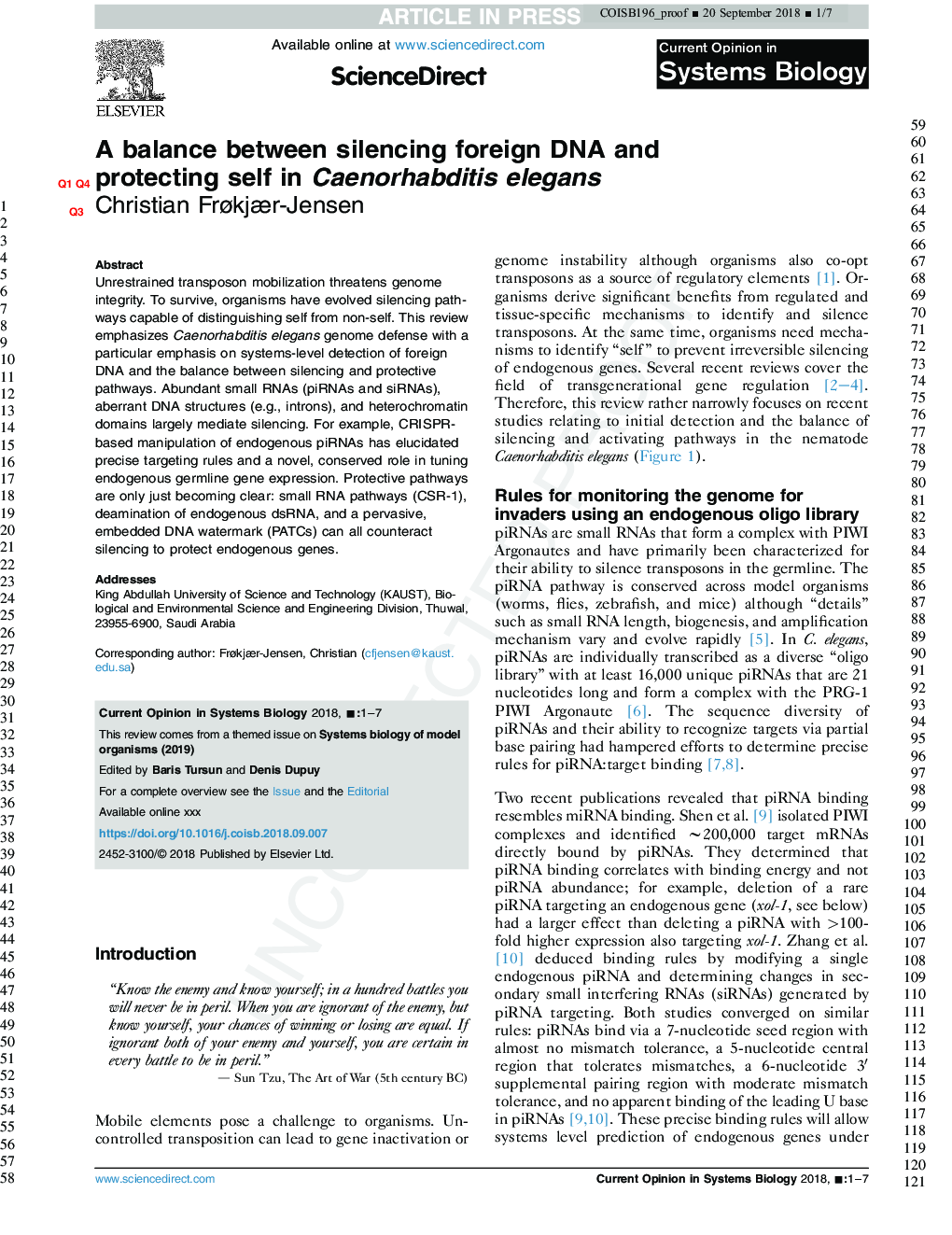| Article ID | Journal | Published Year | Pages | File Type |
|---|---|---|---|---|
| 11030321 | Current Opinion in Systems Biology | 2019 | 7 Pages |
Abstract
Unrestrained transposon mobilization threatens genome integrity. To survive, organisms have evolved silencing pathways capable of distinguishing self from non-self. This review emphasizes Caenorhabditiselegans genome defense with a particular emphasis on systems-level detection of foreign DNA and the balance between silencing and protective pathways. Abundant small RNAs (piRNAs and siRNAs), aberrant DNA structures (e.g., introns), and heterochromatin domains largely mediate silencing. For example, CRISPR-based manipulation of endogenous piRNAs has elucidated precise targeting rules and a novel, conserved role in tuning endogenous germline gene expression. Protective pathways are only just becoming clear: small RNA pathways (CSR-1), deamination of endogenous dsRNA, and a pervasive, embedded DNA watermark (PATCs) can all counteract silencing to protect endogenous genes.
Related Topics
Physical Sciences and Engineering
Computer Science
Computer Science (General)
Authors
Christian Frøkjær-Jensen,
